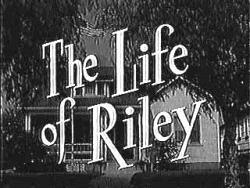
In his latest address to the City Council Monday night that highlights the city’s legal battle over tax payments of the trash-to-energy plant run by Wheelabrator, citizen financial watchdog John Marshall Lee declares in a Life of Riley moment, ‘What a revolting development this is.” From Lee:
Let’s consider the economics of Bridgeport and the trends you create every time you vote on a matter of financial substance. You vote as a Council on a number of issues of financial substance at these meetings.
For instance recently you voted to reduce the flow of tax revenues to the City for 40 years into the future in the case of Laurelwood on Norman Street. You removed property from the Net Taxable Grand List. (That is the important “Grand List” when it comes to taxes.) The new owner will pay a lower, albeit increasing, schedule for 40 years. As that takes effect, $4.6 – $8 Million of appraisal is removed from the assessment list. What is the Net Taxable Grand List value after that reduction? Have you ever seen such a list? Would it help you see these trends you are creating?Speaking of lists, where is the list of properties removed by City Council vote over the past 10-20 years? Since all properties are revalued from time to time, the appraisals for all properties are available and the assessments at 70% of appraisal value are also known. What would be the difference between the revenues that will be paid to the City and those that would otherwise be required to be paid according to the annual mil rate? Have you seen such a calculation? What did you give away? At election time next year can you explain to taxpayers just how “economic development” has been served by most of the abatements and initiatives you have passed?
If you have not seen financial reports such as I mention, perhaps you understand how taxpaying homeowners and businesses feel at this moment. The City, after unsuccessfully trying to escape a State mandated five-year appraisal, ordered the revaluation and it was completed in 2013. Taxpayers funded close to $300,000 for this wasted effort. We heard through the grapevine City leaders who did get to review this data were so distressed by “the reality of the numbers,” that is, the decrease in property values especially in certain voting neighborhoods, they allowed the information to ‘disappear.’ Even former City Council President and Mayor, John Fabrizi with a Freedom of Information request on his own home could obtain no such info from the City. John Fabrizi is a small taxpayer as I am also, though when I have to write the check twice a year, it does not feel small to me, especially when I feel that City leadership is not being fair and square with us.
Have you ever thought about Bridgeport’s largest current taxpayer, Wheelabrator, the private operator of the “trash to energy” facility on Howard Avenue? That firm takes in waste materials from communities in the area, burns the refuse, and produces electricity that is sold. They also produce heat that can be of value to “green” economic development but that is a story for another day (and perhaps indicates better treatment of a major taxpayer by the City).
Wheelabrator has been fighting City assessed values, and non-revaluation City increases in multiple court cases for many years now. And the City has been defending its position as appeals are filed. While the City pushes a real and personal property value of $473 Million, their own expert as of two years ago can at best substantiate only $357.5 Million. Why does the City continue to fight the matter in court? It is an expensive fight, but is this legal expense or any part of this story shared with your Budget and Appropriations Committee? Why not? Is it that you fail to ask? Let me remind you, when you fail to ask, you fail in your watchdog role. How is the taxpayer being served? Is it time for your body to let the Mayor know that cooperation with Wheelabrator on developing new green activities has value to the City? Is it time to call off the lawyers and their hidden expense to the City, especially since the City’s own experts cannot substantiate the actual City assessments?
Or do we just find ourselves thinking in the words of William Bendix on too many occasions: “What a revolting development this is?” Time will tell.


This is a lawsuit that will … has really serious budget/tax ramifications.